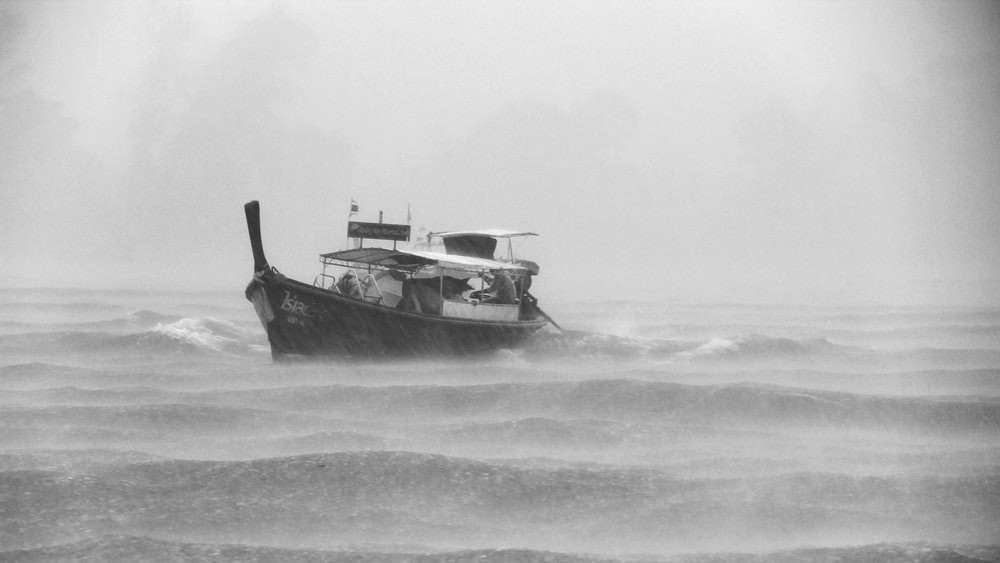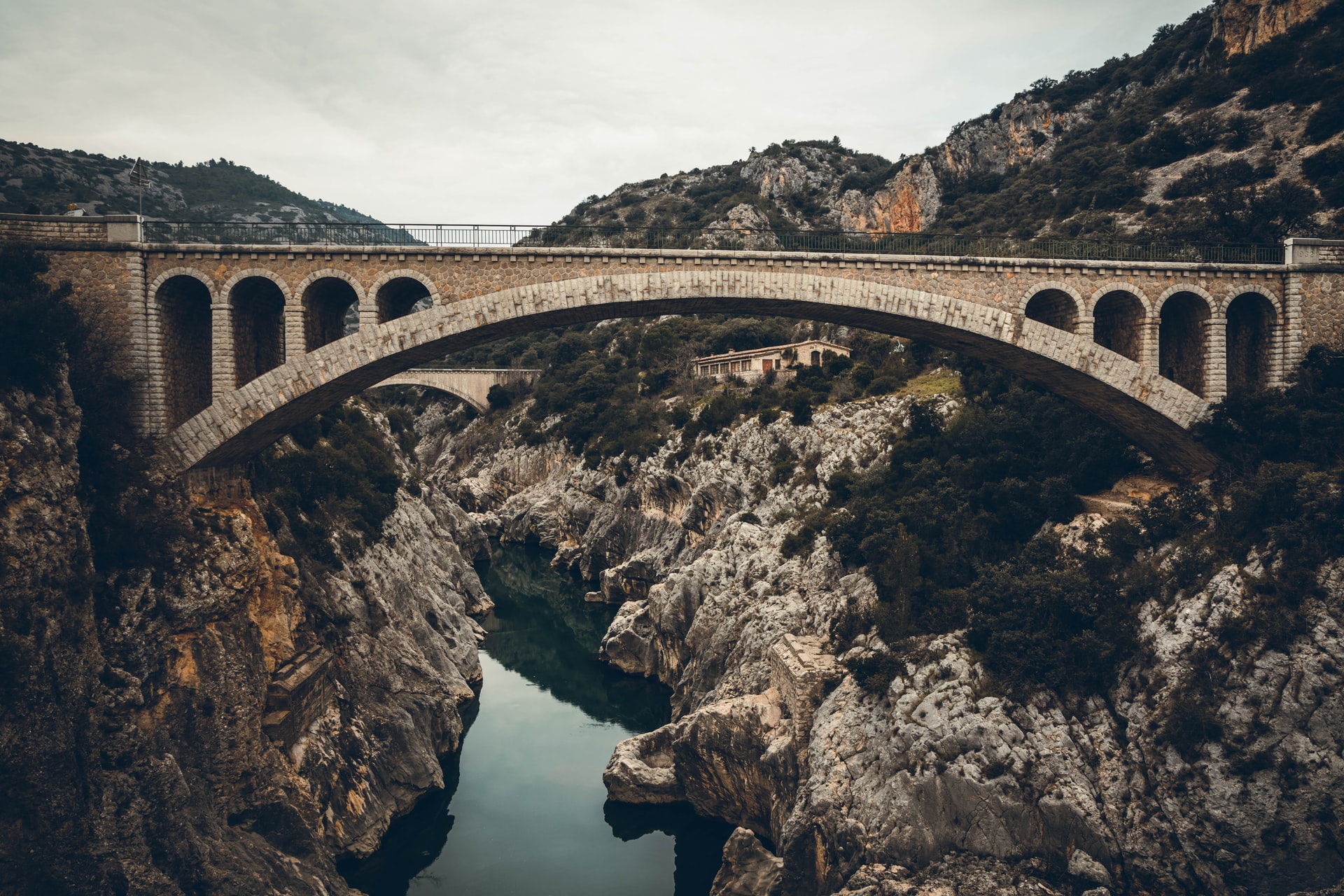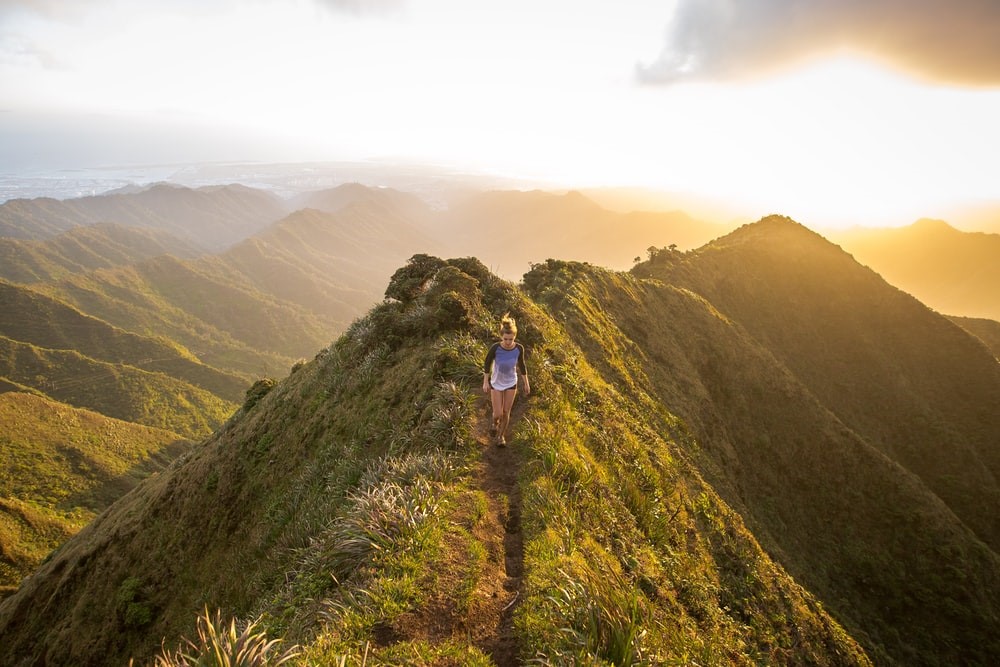I first heard this story last year while reading 438 Days—by Jonathan Franklin.
El Salvador 1975
Jose Alvarenga was born in Garita Palmera, Ahuachapán, El Salvador in 1975.
He fled his childhood home in his 20’s—hoping to leave behind his troubled past.
During a bar fight gone wrong, Alvarenga was stabbed eleven times. One of the assailants was mysteriously killed a few days later, and Alvarenga was blamed. He was apparently placed on a hit list.
Since El Salvador had one of the highest murder rates in the world—he feared for his safety and left the country—leaving behind his girlfriend, parents, and only daughter.
He eventually settled in the small fishing village of Costa Azul, Mexico—where he was known as a fun-loving, hard-partying, tireless fisherman.
As he had been doing for years—on November 17th, 2012—Alvarenga stocked his small motorized 24-foot fiberglass skiff to set out for what should have been a 30-hour deep-sea fishing trip.
He hoped to bring back an impressive haul that would yield a big paycheck.
He took with him only a small amount of food, fishing tools, and an emergency radio.
His usual fishing partner backed out last minute—forcing him to take a far less experienced crew member—a 23-year-old youth named Ezekiel Cordoba.
After only a few hours, the trip was looking good—the two men were overloaded with more than 1,100 pounds of fish—which they packed into an icebox about the size of a refrigerator.
Not long after, they were hit by a large storm which destroyed their motor and damaged the radio before they could give their coordinates to potential rescuers.
The storm lasted 5 days—forcing them to throw their bountiful catch overboard—in a futile attempt to steer back to shore.
When the storm cleared, they were adrift and floating out to sea with no food and pitiful supplies.
Alvarenga showed incredible discipline and grit.
Having spent much of his life at sea, he set to work every day storing rainwater and catching anything he could—a disgusting buffet of raw jellyfish, turtles, and even seabirds unlucky enough to land on the railing of their small vessel—with his bare hands.
Weeks turned into months.
When water was scarce, the men survived off of a mixture of turtle’s blood and their own urine to stay hydrated.
But after 4 months, the younger Cordoba could not bring himself to consume any more of this revolting diet—and finally succumbed to death from starvation.
Apparently for psychological comfort, Alvarenga kept Cordoba’s lifeless body on board for 6 more days, conversing with him regularly.
Alvarenga would drift for 9 more months alone, losing most of his clothing, and escaping the scorching sun under the cover of the boat’s icebox.
During this time, he was passed by several large transoceanic container ships, but he would pass by them too small to be seen. Each time was a crushing blow to his morale.
He kept his mind occupied by charting the phases of the moon or imagining what he might say to his family members whom he had not seen in more than 8 years.
He occasionally decided to leave his boat for a swim, only to be chased back on board by circling sharks.
When asked how he endured such isolation and torment during his journey, he said that his strong religious faith sustained him.
On January 30th, 2014—after 438 days at sea—he finally spotted land.
He threw himself from the boat and swam naked to the shore, holding only a small fishing knife.
He made landfall in a remote corner of the Marshall Islands.
Nearly unable to speak from his time in isolation, he encountered a local couple at their small island home. They offered him food and contacted the local authorities.
A research team at the University of Hawaii estimates he drifted more than 6,000 nautical miles after leaving Costa Azul.
He became the first person in recorded history to have survived in a small boat at sea for more than a year.
What can we learn from how he survived such brutal circumstances—alone?
How can we apply what he did to challenging seasons of life?
There are enormous personal leadership lessons we can glean from this incredible survival story.
Turn information into action
- Create structures in your day or week. Alvarenga had daily routines of fishing, thinking, swimming, and storing food or rainwater. Much has been said over the past few years about the mental health toll of the pandemic. We need routines and structure in our week more than ever.
- Keep hope alive. The ocean is a fierce and desolate wilderness. Imagine being pummeled by fierce storms, alone, in the middle of the ocean. He was even passed by ships he could see, and didn’t see land for more than a year. Despite this, Alvarenga almost never lost hope, but he had to work at it daily. He had to keep reminding himself of his faith and his family. He literally fed his mind a steady diet of hope every day.
- Rediscover your imagination. Alvarenga refused to succumb to the torture of isolation. He charted the stars and imagined conversations with family members. Even Einstein said he valued imagination more than knowledge. Now is the time to rediscover your imagination and be creative with how you spend your time.
- Remember that life is about relationships. Alvarenga spent much of his solo journey thinking about his parents and his daughter, the people he loved. In her amazing book—The Top 5 Regrets of the Dying—Australian hospice nurse Bronnie Ware shares what most people thought about when faced with death. After interviewing hundreds of people on their deathbeds she says, “When faced with your rapidly approaching death, all the physical details of life fall away. Money and status hold no true importance. All that remains is love and relationships.” Crisis can help us refocus on what matters most.
- Enjoy nature again. Nature does good things to our hearts and brains. And Alvarenga loved the sea. It might actually have been better for Alvarenga’s mental health in some ways that he had no access to a smartphone or limitless Netflix streaming. Many of us, and our children, suffer from a kind of nature-deficit-disorder, which has not improved our mental and emotional well-being. Even though I love the outdoors, it’s still hard for me to go for a walk rather than to sit on the couch with a screen. That is one of the great gifts of the pandemic; it has forced us to walk outside again.
Have a great weekend!
Parker
Suggested Resources
- 438 Days: An Extraordinary True Story of Survival at Sea—Jonathan Franklin
- The Top 5 Regrets of the Dying—Bronnie Ware
- Photos and highlights of Alvarengas story: https://allthatsinteresting.com/jose-alvarenga




